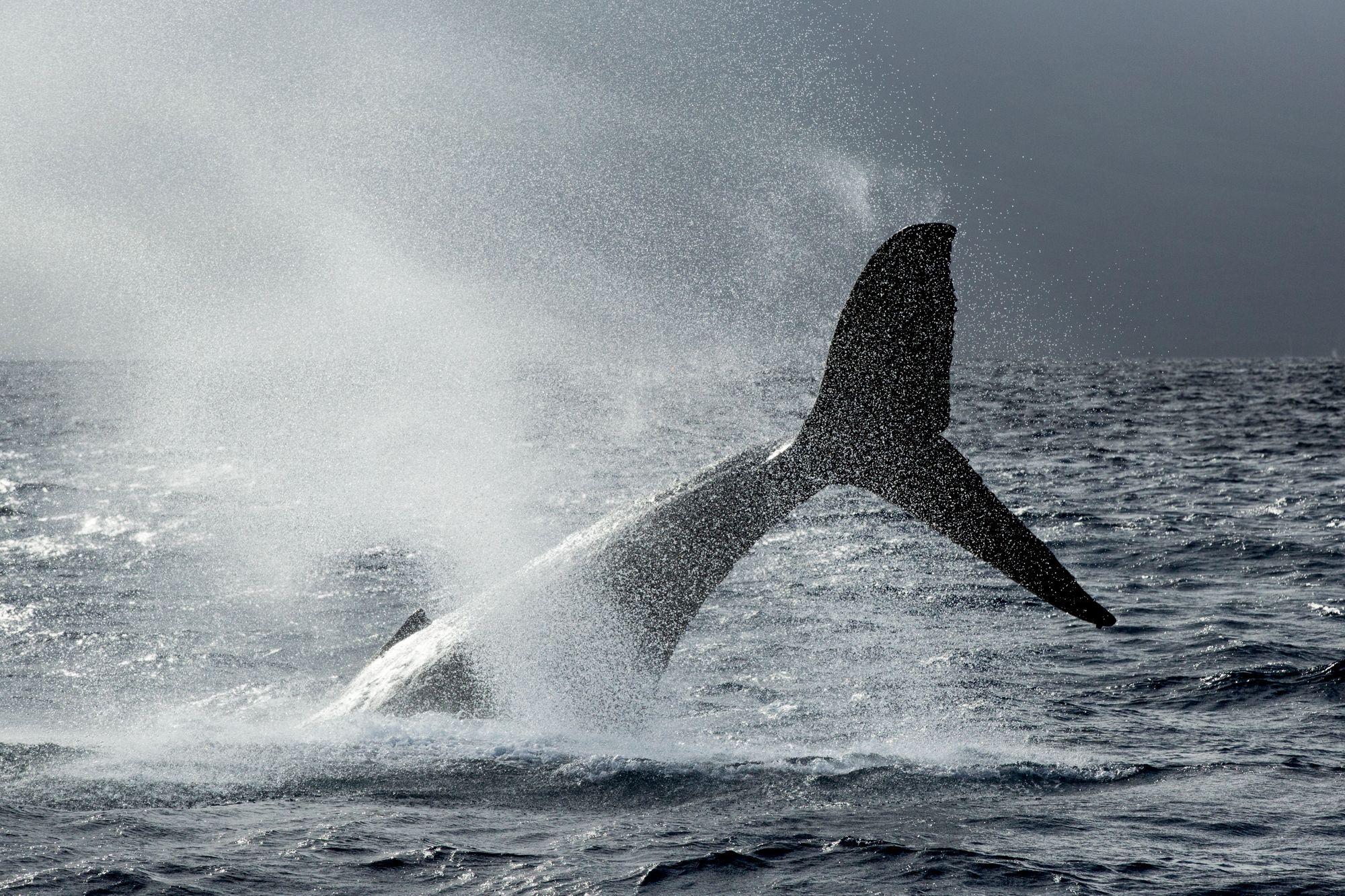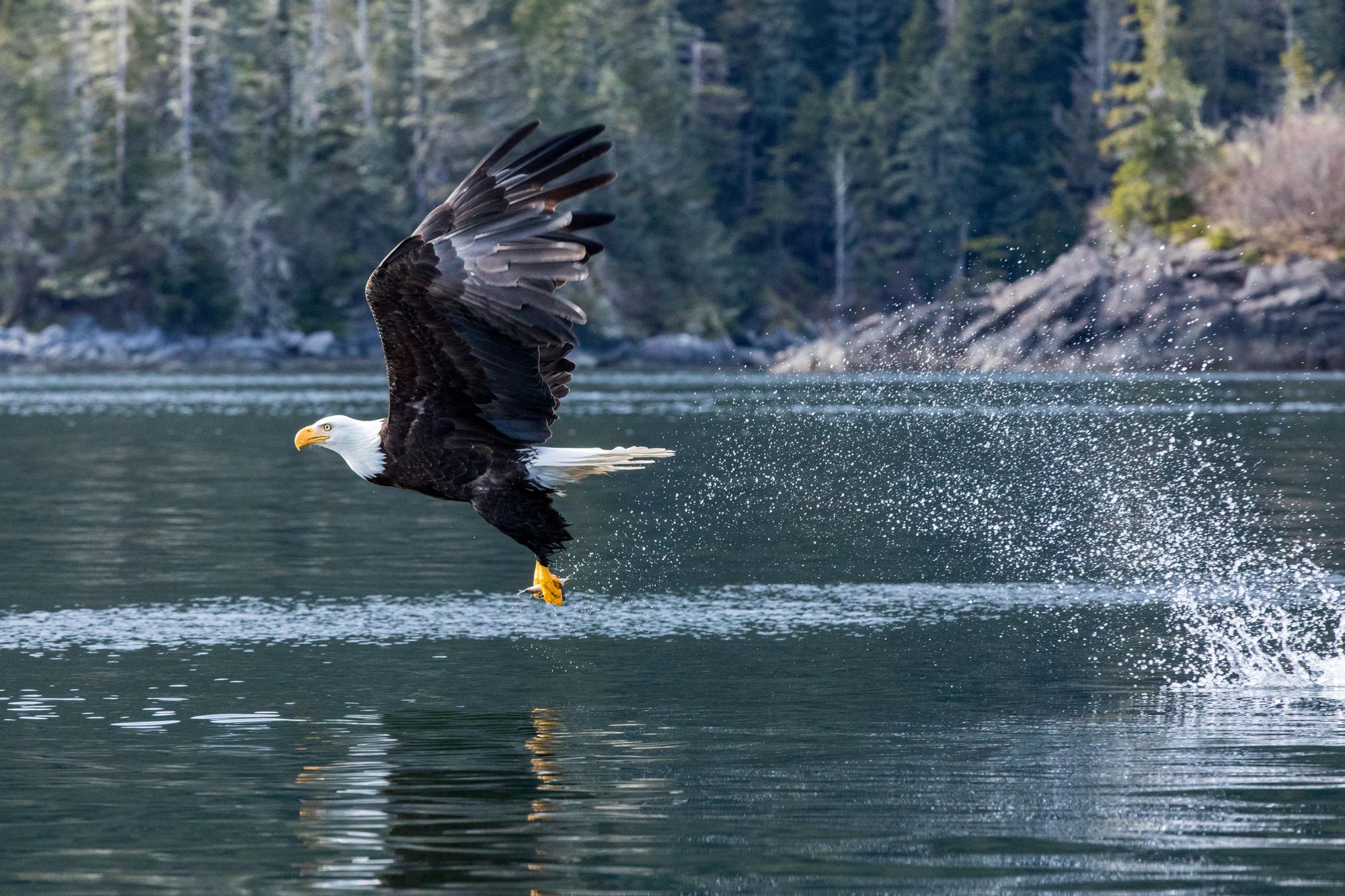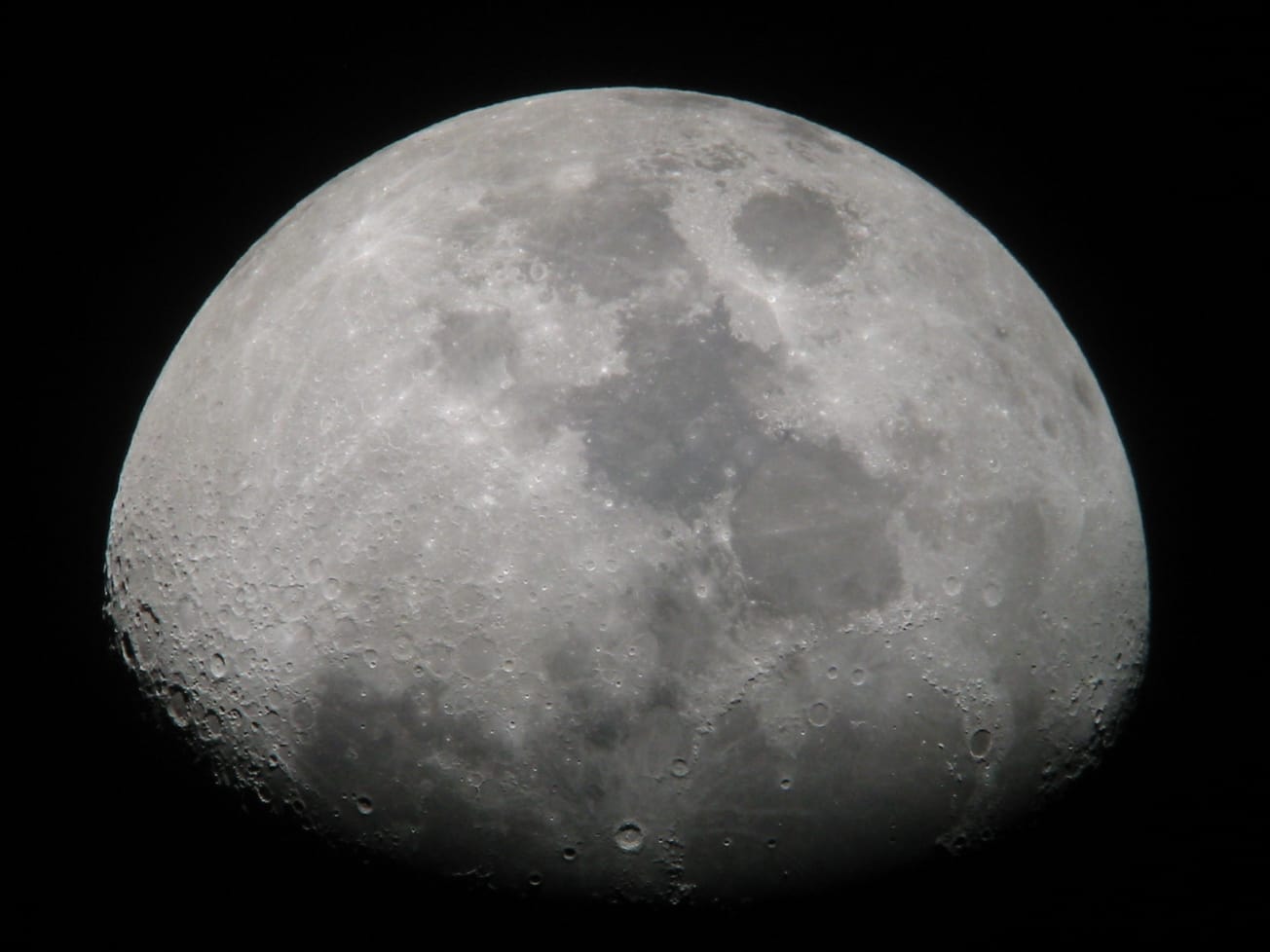By Edward Deacon, SciTech Digital Editor, and Julia Riopelle, SciTech Editor
Shortly after the release of David Attenborough: A Life On Our Planet, Epigram reached out to Silverback Films to speak to Dr Keith Scholey about his career in wildlife filmmaking, and the message he hopes this documentary conveys.
Dr Keith Scholey is a University of Bristol graduate, who obtained an undergraduate degree and PhD in Zoology at the University.
Early in his career, Scholey joined the BBC Natural History Unit as a researcher and worked his way up to become the Head of the Unit, which he ran alongside other specialist departments until he turned 50, at which point he decided to return to filmmaking. In 2012, he and his colleague, Alastair Fothergill, founded Silverback Films, an independent Bristol-based wildlife film production company.
Films produced by Silverback are becoming increasingly focused on the environmental crisis. In addition to A Life On Our Planet, Silverback have created two other films, Our Planet: Our Business and Our Planet: Too Big To Fail, which are aimed towards finance and business, and making the case that nature can be a major economic asset.

Julia: As a current zoology student at the University of Bristol, I was wondering how you made the switch from research to filmmaking?
At the University of Bristol I specialized in animal locomotion. For my PhD I filmed birds flying, which was very fun, but then I had to spend hours analysing it, which wasn’t so much fun. When the opportunity to go into film turned up, I made the jump. This was sheer luck, as a guy in my PhD lab knew a producer in the Natural History Unit. At the time they were making David’s second ever big series, The Living Planet. They had to film a section all about the sky and did not know how to approach it, so I gave them some ideas and the rest is history.
Julia: I assume you had many transferable skills coming from your Zoology degree that were desired by the film industry?
Bristol gave me a huge, really strong core understanding of zoology, which I’ve always fallen back on. My PhD was also the best training I could ever have had. Doing a PhD, you get told to come up with your own idea, which is the same in filmmaking. I always say to people in our business: ‘Don’t rush because it’s a tortoise and hare scenario.’
The people who leave university straightaway and then get a job at the BBC may be very bright and get it. However, it’s the old tortoises who go away and travel the world to gain all sorts of other experiences, who then show up and suddenly leapfrog ahead of the rest because they're more worldly wise. Maybe they’ve spent time studying elephants in Botswana, and they know how to look after themselves in the bush.
In our business, we need people who understand zoology, but we also need people who know what an animal is going to do in 10 minutes time. That’s the basic rule of our job. Often the right research project can give you a huge amount of experience, and by and large you are left to sort it out yourself, and you learn fast when you’re left to sort things out yourself.
Edward: As a director and producer, what form does your work take? How much of your directing is out in the field versus working in the studio?
It really varies from project to project to be honest. Some of the films I’ve made since I left the BBC have been very hands-on. As soon as I left the BBC I wanted to go back to Africa, so I made a film for Disney called African Cats.
I must have spent about five months of every year in the Maasai Mara driving around in my little Land Rover, working with the film crews, helping to craft the film on location. On some of these bigger projects, like we did for Netflix for a series called Our Planet, Alastair and I are more driving the team.
We try to go on location whenever we can, largely to remind ourselves that it’s difficult. We can’t say things like, ‘Why couldn’t you have got that shot?’ or ‘Why didn’t you get that sequence?’ because in the field you spend your first two days just trying to find the animal you’re supposed to be filming. You say, ‘Ah I remember this. This is hard.’ It keeps you grounded, and it’s also a hell of a lot of fun being out on location rather than sitting in an office.
People say wildlife camera man must be so patient and they’re not. What they are desperate for, is not to miss the moment. If you’re following a lion pride for a week or two, and you take your lunch break and a hunt happens, you’re in a bad place, so you don’t take the lunch break.
You stay out there as long as you can because of the fear that the thing you’re really waiting for is going to happen, and that’s what motivates and drives us. It’s not patience actually, it’s fear of missing it.

Edward: Would you say the most exciting element of creating the film is capturing those moments?
Coming up with the first idea and thinking how you’re going to do it is always good, but when you enter the field, it takes on a world of its own because the animals are writing the script.
You might think, ‘I'm going to follow this cheetah’, and then the cheetah starts to do all sorts of crazy things so you build the story around that.
Editing is wonderful because you’ve got a bag of bits and you’re creating the story, then you contact a composer who writes the score that lifts it up, then you write a script and send it to David Attenborough who gets holds of it and rewrites it for you, and you think, wow, that's good. Suddenly he sticks his voice on it and you think, wow, that’s really good.
That’s the joy of filmmaking, the whole process is amazing.
It involves so many different creative talents. For someone like me if you think ‘I’m the filmmaker, I’m the auteur, I create this thing,’ I’m just kidding myself because if I’m good at what I do, it’s how good I am to persuade great people to join on the journey. You’re a conductor in an orchestra, you’re not the whole orchestra.
Julia: As you cover a lot of different countries and climates, do you have many different teams that are all filming at same time or do you go bit by bit?
Yeah, a big series generally takes two years due to the seasonal elements. Each program also has a producer who will either make one or two programs simultaneously, and they’ll have an assistant producer and researcher who go to partner with freelance craft talent and film different sequences.
Some filming is really, really simple - you just go off with one other person. Sometimes it’s an underwater thing and you might need quite a big crew depending on the complexity of it.
Julia : How involved are local communities? Are they usually aware of the productions happening? Do you share the video of the movies you make featuring their country’s iconic wildlife?
We are at fault for not doing enough of that. Often when you’re filming, you’re probably in a national park somewhere, so you’re isolated from the indigenous people. We make films for broadcasters and I guess, some of the sadness, is that quite often those broadcasters don’t control the rights of those films. I think there is an issue that the poorest companies never get to see the work. This is unfortunate, as these are the people you want to really inspire about the local, so there is a shortfall there. We recognise that.
Julia : Your most recent documentary, A Life On Our Planet, was a collaboration with the WWF. Who first proposed the creation of this documentary?
It came out of making the series Our Planet for Netflix. David was always involved with that and as it was gathering speed, whilst also spending time with David, we just thought together, ‘wouldn’t it be great if we film all that has happened in your lifetime?’ The planet through the eyes of Sir David Attenborough; his kind of witness statement. We collectively thought, that’s amazing, but in a way it’s also a sad story. What we absolutely needed to be was brutally honest; David needed to be brutally honest with what has happened to the world in his lifetime. But also to say, ‘if we act fast, we’ve still got a moment to get out of it.’
We had already collaborated with WWF on the One Planet series. We worked very closely with an amazing guy called Colin Butfield, who became assigned to the series and this new A Life On Our Planet documentary. We agreed that if we were going to make this film, we wanted to give David complete editorial control to say anything he wanted, regardless. WWF raised the funds for the film.

Edward: In terms of the production, how were responsibilities and decision making shared between Silverback and the WWF?
The actual filmmaking was completely left to us, that was always the deal. At the end of the day, there was only going to be one editor-in-chief, and that was David Attenborough, and they left us to make the film. We had a very good relationship on Our Planet as well and they’d been very pleased with that. It was a thing of trust really, and they’ve been delighted with it.
Julia: What was the vision for the documentary?
We wanted to keep it really simple and look at the key issues.
The big problem with the environmental crisis is often people find it too complex, and think, ‘Oh god, there’s so many terrible things going on,’ and you can't see a road out of it. So there’s this despair, and nothing gets done. The main solution solely lies with rewinding the world. You cannot re-stabilise the Earth without re-shifting the planet to more environmental-based economies.
It’s all about the value change. One of the most exciting ideas currently for conservation is carbon taxing. Something as simple as putting $5 per tonne of carbon and if those $5 go to anyone that absorbs carbon, they say it would make the Amazon rainforest worth $750 billion annually. These are the economic incentives which need to be established. Then if you consider putting $50 per tonne of carbon, which is a more realistic sum, that value would increase to $7.5 trillion. Nobody will notice a $50 carbon tax, but it will create a huge shift. So once the Amazon rainforest is making $7.5 trillion a year, by industrially leaving it alone, Bolsonaro and Brazil would actually profit from it. If he made this money, he wouldn’t chop the rainforest down.
There are such simple changes one could implement to shift the current balance of where we place our value. Once you place value on rainforests, oceans, the Serengeti as carbon sinks, the need for conservation organisations would become redundant. Nature itself would just become a major economic asset. Then suddenly, as you mentioned, it becomes logical to make recycled plastic cheaper than new plastic.
We can use subsidies and taxation in a very positive way. I see all these things as forming the framework of a ‘defence policy,’ which is how we must protect our planet and descendants.
Julia: How do you reach the people who have the power to implement policies that would bring around this shift?
In recent years we’ve shown our documentaries at the World Economic Forum with David Attenborough and Prince William. The audience includes very influential people, who take the message to their boards or invite us to speak in their respective countries.
If you want to solve the environmental crisis, you have to get finance and business on your side. Once you start shifting pension funds out of carbon and move it into re-wilding, then you are making effective change. We’ve made specific films for these different sectors, such as Our Planet: Our Businessand Our Planet, Too Big to Fail.
After we get business and finance on our side, then the second step is political change. An example of this can be changed with one stroke of the pen; if you stop putting subsidies on fishing boats, you will stop overfishing the ocean. The open ocean is one of our main carbon sums, which is currently being destroyed in a long-term unprofitable business.
Julia: We aren’t going to win the war on the climate crisis by destroying our carbon sums. Going back to documentary production, when writing the scripts do you have large teams of climate scientists fact-checking them?
That is where the WWF comes into play, as they have a huge team of researchers in all the areas of wildlife and climate science you can imagine. They publish the Living Planet Report every two years, so they have all the global data on these subject matters. We got them to drill over every little detail in the script.
The one thing we knew for sure is that if Sir David Attenborough said one thing that wasn’t 100 per cent accurate, the media and every climate change denier worldwide would be onto us. Every fact had to be checked and sourced from multiple places - we made sure of it.

Edward: Over the span of your filmmaking career, has there been a change in the way documentaries are made? In earlier documentaries, they seemed more educational in showcasing wildlife to viewers, whereas today, it is educational, but there also a political and social call for action.
Absolutely. If you think back to people who just experienced the Second World War, the majority would have never seen photos or footage of a coral reef. They probably didn’t even know what a coral reef was. The early days was just showing people how magnificent the wild world was.
The second step in this evolution of documentaries was to raise awareness that certain animals were going extinct. From individual species, filmmaking then shifted to showing the loss of habitats and emphasising how interconnected everything is. It’s only been in the last 10 to 20 years where we have realised, it’s not about individual species or habitats, the whole world is one living system. I think I myself only became truly aware of that about 15 years ago.
Unfortunately, many still do not believe the scale of the climate crisis. And I do strongly believe that the climate crisis is largely a communication crisis. In the 1990s the climate deniers were given too much of a platform in the media, which has strongly delayed any earlier course of action. Even the BBC was at fault in giving them too much airtime on the subject.
What we have to make sure, is that the climate crisis is in no way political. Once we polarise views on the climate, we won’t ever be able to unite together to tackle it. You don’t have to be from one certain political party to believe what is happening. It’s a fact that the world is falling apart. We must have a consensus on how to fight the war on anthropogenic climate change.
You mustn’t alienate people, even those who have different views to you. Use the power of persuasion to get deniers to see the stark reality and bring about change.
Julia: The climate crisis affects all levels of the ecosystem, from microorganisms to big species. However, in wildlife documentaries there is a bias in showcasing more ‘attractive animals’, even though the smallest changes in climates will affect our micro-organisms and algae before the rest. They are at the bottom of nearly all food chains, so if the species we are blind to suffer, we all suffer.
You are definitely right - it is the small stuff that will be our undoing. The conundrum is that the rules of environmental programming used to be that the more ecosystem and environmental focussed it was, the smaller your audience was. Whereas the wildlife shows with all the fan-favourite animals, reigned in millions of viewers. Whilst you still build the value of nature, the ones focusing on environmental issues didn’t receive many viewers.
What we tried with A Life On Our Planet, was to break the deadlock separating wildlife and environmental issues in film. We showed iconic species, as well as displaying habitats and their smaller inhabitants, all whilst landing a firm message on the issues threatening these areas. The aim of nature documentaries today is to reach the unconverted.
Julia: There was footage in this documentary focussing on the importance of mangrove ecosystems and showing massive algal blooms from satellite images. I think you did well to capture this.
Bristol’s world-leading wildlife festival Wildscreen goes online for the first time
A Life On Our (dying) Planet: David Attenborough’s plea for climate and biodiversity
Edward: Do you think this documentary will reach those you said were previously unreachable?
I do think they definitely got a bit of a shock when they watched it. We used the ‘David Attenborough’ trick.
Everyone remembers the first time they meet David; he is a very humble and intelligent man. He is impressionable. People listen to him. There was no other person we could have done this documentary with. He’s a natural leader, who could as easily have been successful as a CEO or a politician. We are just lucky he ended up in our neck of the woods, in wildlife conservation.
Featured Image: Silverback Films
This is an abridged interview









